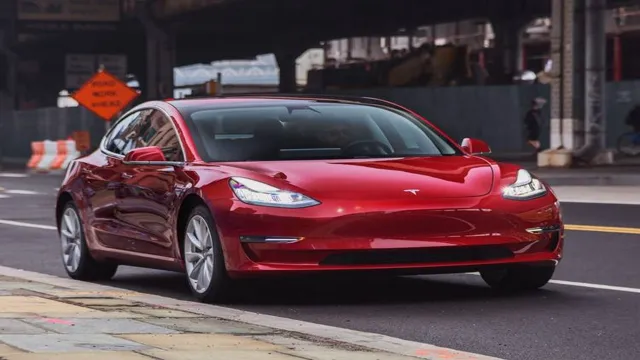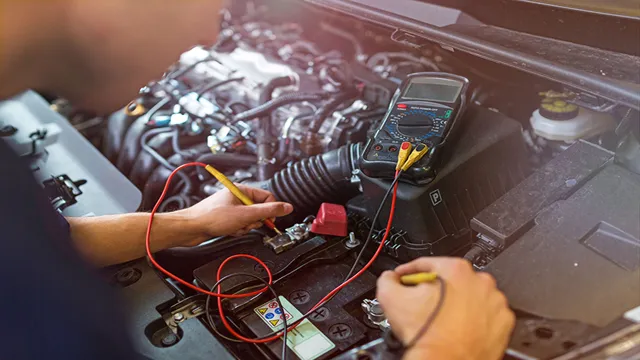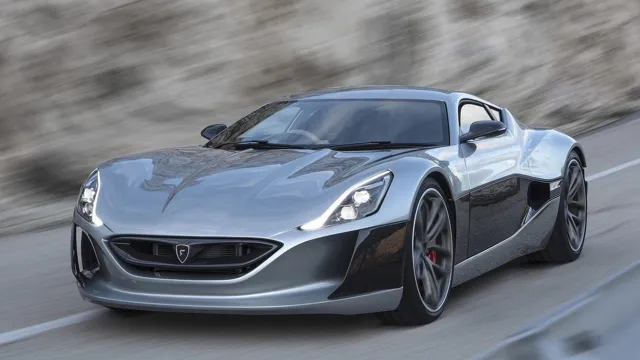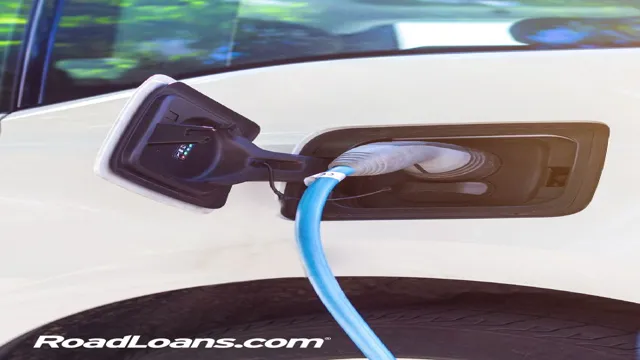Fueling Up the Debate: Gas vs Electric Cars – Which One Wins on Maintenance?
Gas vs. electric cars: which is the better option for you? As global environmental concerns continue to mount, people are increasingly adopting eco-friendly technologies, and this includes cars. The shift towards cleaner energy has given rise to two major choices: gas and electric cars.
But which one is a better choice? Well, it depends on your preferences, driving habits, and budget. Gasoline engines have been a standard for decades, but the emergence of electric vehicles has created a debate about the superiority of one over the other. Gas vehicles rely on combustion to generate power while electric vehicles exclusively rely on batteries.
This fundamental difference means that gas and electric cars have unique pros and cons, which we will explore in this article. In this comparison of gas and electric cars, we will explore factors like fuel economy, maintenance costs, and performance, among other things. We will delve deeper into the technical aspects of these cars and bring you the most informative guide to make the best decision for your next vehicle purchase.
So, whether you care about environmental benefits, efficiency, or performance, buckle up, and let us explore the gas vs. electric car debate.
Efficiency
When it comes to efficiency, there is a clear difference between maintaining gas and electric cars. Gas cars require regular oil changes, transmission fluid changes, and spark plug replacements, while electric cars require little to no maintenance. This means that over time, electric cars will cost less to maintain than gas cars, making them a more efficient choice in the long run.
Additionally, electric cars are more efficient in terms of energy use, as they convert a higher percentage of energy from the battery to propulsion compared to gas cars, which waste a significant amount of energy as heat. So when it comes to overall efficiency, electric cars are the clear winner. Not only are they cheaper to maintain, but they also use energy more efficiently, making them the better option for those who prioritize sustainability and cost-effectiveness.
Gas cars have limited fuel efficiency, electric cars are more energy efficient.
Efficiency Gas cars have been the go-to for transportation for decades, but as we move towards a more sustainable future, electric cars are becoming increasingly popular. One significant difference between gas and electric cars is their fuel efficiency. Gas cars have a limited fuel efficiency, meaning they require more energy to travel the same distance as electric cars.
On the other hand, electric cars are more energy-efficient, meaning they require less energy to travel the same distance as gas-powered cars. This is because electric cars use their energy more intelligently and waste less energy during their operation. The energy is used efficiently to power the car, and in turn, electric cars produce less harmful emissions than their gas-powered counterparts.
Due to their efficiency, electric cars have a lower operating cost than gas-powered cars, saving drivers money in the long run. Overall, electric cars are the more sustainable and economically preferred choice due to their improved energy efficiency.
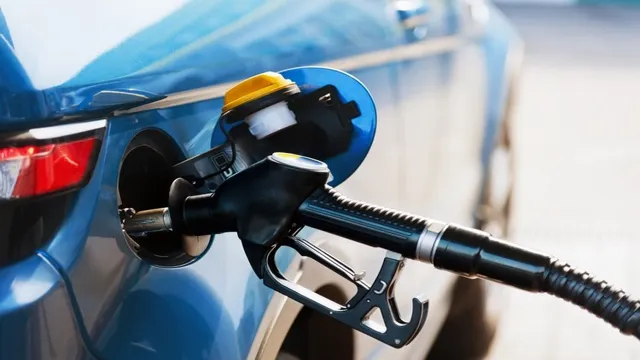
Cost
One of the most notable differences between maintaining gas and electric cars is the cost. While gas cars require regular trips to the gas station, which can quickly add up in expenses, electric cars rely on charging stations. Depending on your area, charging at a station may even be cheaper than refilling your tank with gas.
Additionally, electric cars require less maintenance than their gas counterparts. Since electric cars have fewer moving parts, there is less wear and tear on the vehicle, meaning less money spent on repairs and replacement parts. The initial cost of purchasing an electric car may be higher than a gas vehicle, but the long-term savings in maintenance and fuel costs make it a more economical choice.
Gas cars are generally cheaper upfront but have higher maintenance costs. Electric cars are costlier but have lower maintenance costs.
The cost of owning a car can vary greatly depending on whether you go for a gas or electric vehicle. Gas cars are generally cheaper upfront, but their maintenance costs tend to be higher over time. This is because gas cars rely on an internal combustion engine, which requires frequent oil changes, tune-ups, and other repairs.
On the other hand, electric cars are costlier to purchase but have lower maintenance costs since they have fewer moving parts and no need for oil changes or regular maintenance on the engine. While the upfront cost of an electric car may be more expensive, in the long run, it may be a more cost-effective choice due to the lower maintenance costs. It’s important to factor in both the upfront costs and the long-term maintenance costs when choosing between a gas or electric car.
What matters most to you–saving money initially or over the long haul?
Environmental Impact
There are numerous advantages to switching from a gas-powered car to an electric one. One of the most significant is the impact on the environment. Electric cars produce no harmful emissions, while gas-powered vehicles can emit toxic gases that contribute to air pollution and greenhouse gas emissions.
The difference in maintenance costs is also notable. Electric cars require less maintenance, and the upkeep is less expensive due to fewer moving parts than a traditional gas engine. An electric vehicle can also be charged at home, reducing the carbon footprint associated with traditional fueling methods.
Making the switch to an electric car not only benefits the environment but also has the potential to save you money on maintenance and fuel expenses. It’s a win-win situation.
Gas cars emit harmful pollutants, while electric cars emit no direct harmful emissions.
The environmental impact of gas cars versus electric cars is a hotly debated topic. One thing we know for sure is that gas cars emit harmful pollutants, while electric cars emit no direct harmful emissions. This makes electric cars the clear winner when it comes to environmental impact.
Gas cars emit things like carbon monoxide, nitrogen oxide, and volatile organic compounds. These pollutants are not only harmful to the environment, but they are also harmful to our health. Electric cars, on the other hand, emit nothing.
They are powered by electricity, which is much cleaner than gas. This means that when you drive an electric car, you are not only saving money on gas but also doing your part to reduce your carbon footprint and help protect the environment. So, next time you are in the market for a new car, consider an electric car for its positive impact on the environment.
Driving Experience
When it comes to the driving experience, there is a notable difference between maintaining gas and electric cars. Gas cars tend to have a quicker acceleration and can handle faster speeds, while electric cars offer a smoother and quieter ride. However, electric cars are more efficient and cost less in the long run, as they require less maintenance and fuel costs.
Additionally, they have regenerative braking, which charges the battery when you decelerate or brake. On the other hand, gas cars require regular oil changes, as well as tune-ups, which can add up over time. Overall, the choice between gas and electric depends on personal preference and driving habits.
If you prioritize performance and speed, a gas car may be a better fit, while those who prioritize efficiency and sustainability may prefer an electric car.
Gas cars offer powerful acceleration, while electric cars offer a quiet and smooth ride.
When it comes to the driving experience, gas cars and electric cars each offer their own unique advantages. Gas cars are known for their powerful acceleration, which can make for an exciting ride. However, electric cars offer a quieter and smoother ride, which can be especially noticeable in urban areas where there is heavy traffic and lots of stops and starts.
If you’re someone who enjoys feeling the power of the engine and the thrill of quick acceleration, a gas car might be the right choice for you. With their high-powered engines and responsive acceleration, gas cars can certainly deliver a heart-pumping ride. Of course, this can also come at the cost of increased noise and vibration, which may not be to everyone’s liking.
For those who prioritize a smooth and quiet ride, electric cars are the way to go. With their electric motors and advanced suspension systems, electric cars can glide along quietly and smoothly, even over rough roads or uneven surfaces. This can be especially appealing for those who frequently drive in urban areas, where a quiet ride can make a big difference in terms of comfort and stress levels.
Ultimately, whether you choose a gas car or an electric car comes down to personal preference and priorities. Both types of vehicles have their pros and cons, and it’s up to you to decide which factors matter most to you. Whether you prefer the rush of adrenaline from a gas car’s acceleration or the calm serenity of an electric car’s ride, there’s no denying that both types of vehicles offer a unique and enjoyable driving experience.
Charging/Maintenance
Maintaining a gas car versus an electric car can differ significantly. With a gas car, you often have to fill up the tank every few days or week, depending on how much driving you do. On the other hand, electric cars owners do not have to go out of their way often to maintain their vehicle.
Instead, they can simply plug in their car at home or work to charge its battery overnight or during their workday. Moreover, gas cars come with regular maintenance such as oil changes, tire rotations, and tune-ups that electric cars don’t need. While electric cars have their own maintenance requirements, they are much less frequent and lower cost than gas cars.
Overall the difference between maintaining a gas and electric car mostly revolves around the on-going requirements of maintenance and charging that comes with gas versus the convenience of the simplicity of electric cars.
Gas cars require regular oil changes and general maintenance, while electric cars require periodic battery replacements and charging maintenance.
When it comes to maintaining cars, there are some fundamental differences between gas and electric vehicles that consumers should be aware of. For traditional gas cars, regular oil changes and general maintenance are necessary to ensure proper engine function and extend vehicle lifespan. However, electric vehicles require periodic battery replacements and charging maintenance to keep their power sources running smoothly.
While changing a car’s battery might seem like a daunting task, with advances in technology, it is becoming easier and more convenient than ever to swap out an old battery for a new one. Additionally, charging maintenance involves ensuring there are no power fluctuations or interruptions during the charging process. Ensuring proper charging also helps to preserve battery life and prevent degradation, extending the vehicle’s range over time.
Although maintaining an electric vehicle might seem a bit different than maintaining a gas car, proper care and maintenance will extend the life of your electric vehicle and ensure that it runs smoothly for years to come.
Overall Verdict
In conclusion, the difference between maintaining gas and electric cars comes down to a few key factors. While gas cars require more frequent oil changes and repairs to their internal combustion engines, electric cars need routine checks on their battery life and electrical components. Gas cars also emit harmful pollutants into the environment, while electric cars offer a cleaner, more sustainable option.
Both types of cars have their pros and cons, and it ultimately depends on individual preferences and needs. However, as the world moves towards a more eco-friendly future, the advantages of electric cars are becoming more apparent. So whether you choose to stick with gas or make the switch to electric, keeping up with regular maintenance is key to ensuring the longevity and efficiency of your vehicle.
Both gas and electric cars have their advantages and disadvantages, but electric cars are a better long-term investment for the environment and cost savings.
After weighing the pros and cons, it is clear that electric cars are a better long-term investment both for the environment and cost savings. While gas cars may currently have a lower upfront cost, electric cars have lower long-term expenses as they require less maintenance, have cheaper fuel costs, and tax credits. Additionally, electric cars produce no emissions and help reduce dependency on fossil fuels, making them a more sustainable option.
While range anxiety is a concern for some, advancements in technology have greatly increased the range of electric cars, and charging infrastructure continues to improve. It may take some adjustment, but investing in an electric car can ultimately lead to a cleaner and more cost-effective future. So, start thinking ahead, and make the switch to an electric car today.
Conclusion
Maintaining gas and electric cars may have their differences, but they both have one thing in common: they both require care and attention to keep them running smoothly. It’s like being in a relationship – whether it’s with a gas guzzler or an eco-friendly electric car – you have to put in the effort to ensure longevity and reliability. So, my friends, if you decide to commit to an electric car, just remember that it’s not just a fling.
It’s a long-term relationship that requires love, attention, and maybe even a little bit of therapy. But hey, isn’t that what makes life interesting?”
FAQs
What is the main difference between maintaining a gas car versus an electric car?
The main difference in maintenance between gas and electric cars is that electric cars require less frequent oil changes and have fewer parts to maintain overall. However, electric cars do require specific maintenance on their battery and charging systems.
Are gas cars or electric cars more expensive to maintain over time?
It depends on the specific vehicle and its maintenance needs, but in general, electric cars have lower maintenance costs over time due to their simpler design and lower need for expensive repairs such as engine and transmission work.
How often do gas cars and electric cars need to be serviced?
Gas cars typically need to be serviced every 5,000 to 10,000 miles, while electric cars can go up to 15,000 miles between service appointments. However, both types of cars may require more frequent maintenance if they are driven under particularly harsh or extreme conditions.
What types of maintenance should be done regularly on an electric car?
Regular maintenance for an electric car may include checking and replacing the battery coolant, inspecting the charging system components, and monitoring battery health and performance. It is important to follow the manufacturer’s recommendations for maintenance to keep the electric car in top condition.
